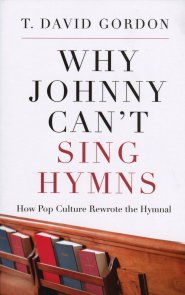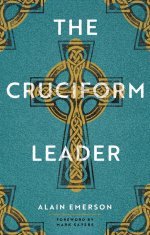In Why Johnny Can't Sing Hymns: How Pop Culture Rewrote the Hymnal, T. David Gordon investigates the changes in music and how they have affected our thoughts, the way we worship and even the way we are able to worship. Gordon explains how our modern culture of pop music has made other genres seem unhelpful, foreign and distant. Worship should be a source of unity but instead has created an area of conflict.
Why Johnny Can't Sing Hymns: How Pop Culture Rewrote the Hymnal provides solutions and ideas for these issues. The way we sing affects how we live, making Dr Gordon's solutions vitally important in our modern culture.
Why Johnny Can't Sing Hymns looks upon the changes in worship from a media ecology perspective creating a unique and authoritative contribution to the 'worship wars' genre. T. David Gordon has created a witty and thought provoking book that challenges conventional wisdom and provides the tools to change it.
Trustpilot











